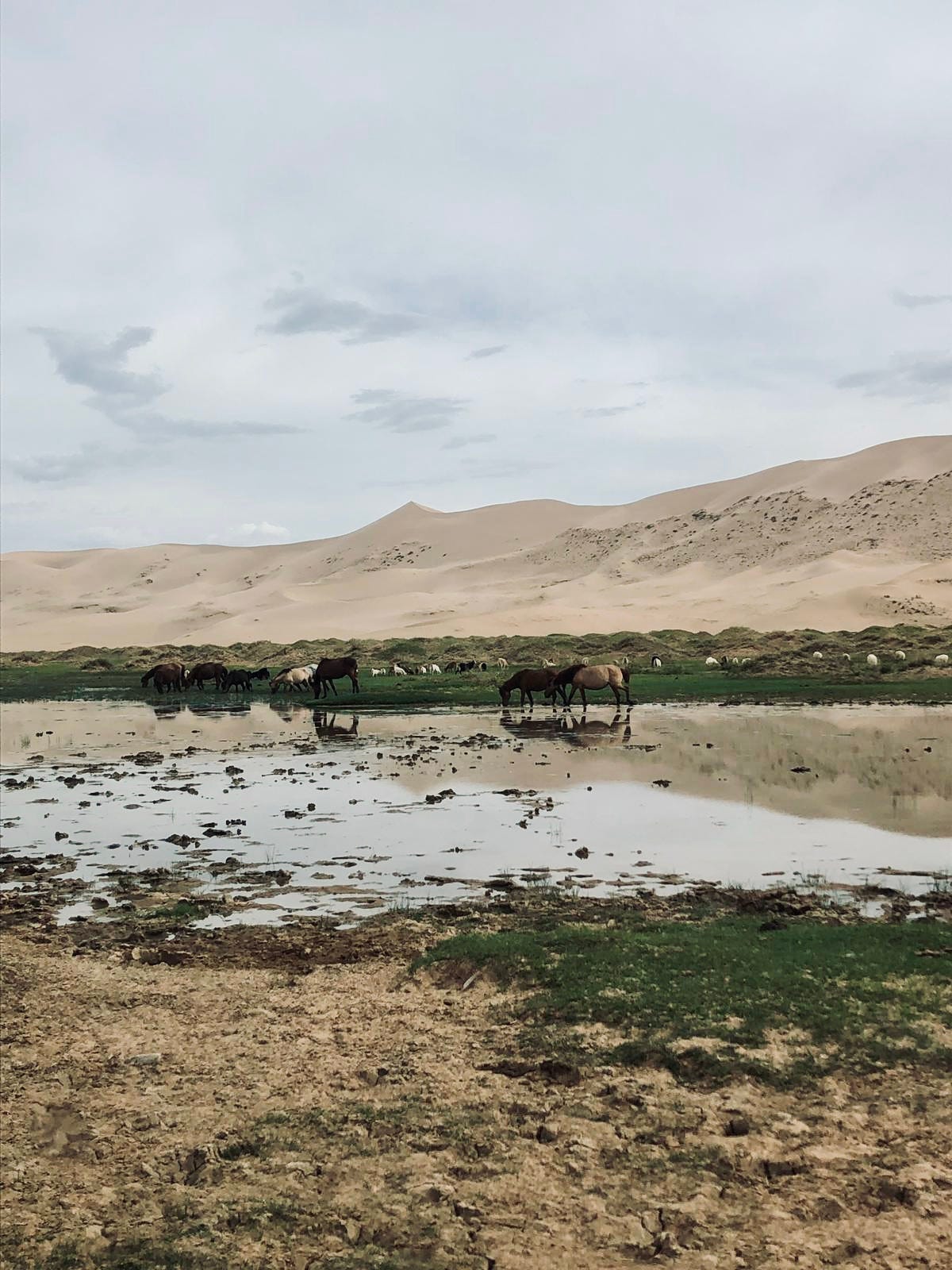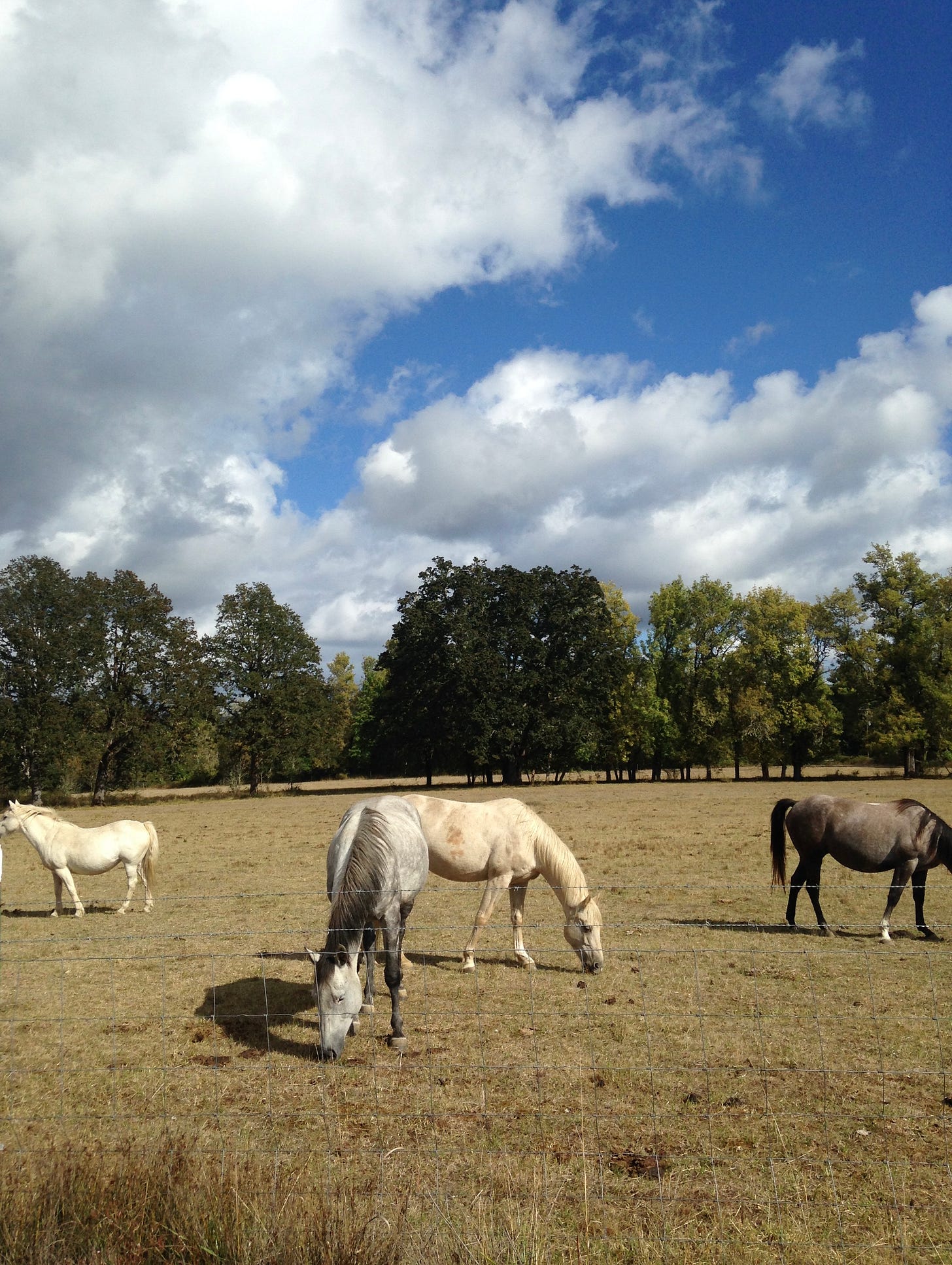On doing the dishes.
"Sometimes I think this is how I started to be a writer."
I was eleven when I begged for my first horse. I would wash the dishes everyday—please, I promise—if I could just have a horse.
I grew up rural and our water came from a well down the hill from our house. We never had a dishwasher because we didn’t have enough water, and the logic of the day was that a dishwasher would require more water than hand washing. I think we also didn’t have enough water pressure, enough oomph in our pump to bring the water efficiently up the hill. I remember that showers were dribbly and you really had to fight to get the spigot on the tub to divert the water up up up again, to the shower head.
All our dishes were done by hand, in as little water as we could possibly get by with.
Another feature of well water in our area, besides its scarcity, was its sulphur content. Sulphur makes your water very slick, very slimy, very hard to rinse off your body or your dishes. It also smells horribly, like a boiled egg sandwich you forgot in your lunch bag, but you get used to it after awhile. I would forget how terrible the water smelled and how pervasive was the stink until I would be gone for a few days. Coming back to the house was always a reminder: oh yeah, we have stinky slimy water.
Doing dishes by hand in sulphur water—very little sulphur water—was not a real hardship. I promised to wash the dishes every day if I could just only possibly please please please have a horse, and it’s not like that was a fair trade. Horses are an investment with only a few small returns, in exchange for literal tons of hay and grain and shoes and tack and wormer and fly spray and, eventually, show fees. Doing the dishes everyday was the smallest price to pay, and I don’t really think I even followed through on that payment.
I got the horse I begged for. An Arabian gelding nicknamed China became mine for a whopping $650, which is cheap for a horse but expensive for the amount of dishes I would wash.
I never understood or could explain his name, it was just what he came with. He also came with official papers, like my Cabbage Patch doll, and his registered name was Arabi-Farwah. A horse like that needs a nickname. He was delicate and sweet and gentle, like fine china I suppose. And just now, writing that, it makes sense.
I would soon become more of a Quarter Horse person, preferring the square stockiness and western pleasure style of Quarter Horses over the angular, enduring, high strung and petite Arabian. China was often mistaken for a small Quarter Horse though, and I took solace in that. Arabs were the sulphur water of the 4H horse world I was in, something to turn your snooty little nose up at, and though China was a good horse for me, I wanted him to be good for everyone else, too. The rich girls had Paint Horses and Quarter Horses and private lessons at fancy barns, traveled all over the state with their fancy trailers and silver buckles, and got the attention of all the boys at the county fair every summer.
I had China and sulphur water and those dishes.
We were not a family that could afford horses, so nobody should feel sorry for poor Tresta with her outcast horse and sulphur water—very little sulphur water—and dishpan hands. The fact that I had a horse at all is a testament to a mother’s love—thank you, mom. I know horses were your first love. I don’t know how we did it and at eleven, I had no concept of finances, but I had a horse for a few years and China and I earned some ribbons and a trophy and rode miles and hours into the mountains, alone.
What I really intended to write about were those dishes.
For however long I kept up my end of the bargain, I disliked washing the dishes. Friends had dishwashers, and I felt the unfairness of life because we did not. This is my “walk to school uphill both ways in the snow” story, and it’s perfectly okay for you to roll your eyes—I’m rolling mine. I was lucky to have a horse and I suffered not one bit by doing dishes, by hand, in sulphur water.
As I washed dishes, I narrated Palmolive commercials to pass the time. My sudsy hands were the hands on television and this soap was like a blend of palm and olive oils that softened your hands while you did dishes. The plates gleamed in the sunlight after I rinsed them and it wasn’t the sulphur still clinging to them: they were Palmolive clean. And my hands came out softer than they went in, just like Madge said.1
I narrated a whole life in my head. In my dishwashing daydreams I rode my horse for days at a time on trails I discovered, sleeping under the stars and waking with the velvet muzzle of my horse in my face. I solved drama at school. I designed whole interiors of my dream homes. I repaired the wounds of the past with the right words, all in my own head, all in a sink barely full of soapy sulphur water and dirty dishes.
Telling myself stories made regular, quotidian life seem more interesting. I had the freedom of owning my own horse, and that took me miles and made lots of memories, but doing the dishes did something for me that would last a lifetime.
Sometimes I think this is how I started to be a writer2.
I found this Palmolive commercial from 1985, if you want a bit of nostalgia. Some version of this was in my mind every time I washed the dishes, even though I don’t remember us ever actually using Palmolive brand.



Loved this, Tresta -- both your words and the writing prompt itself. I shared this link with a writing community this morning, and can't wait to write my own version!
Love where this went, Tresta!